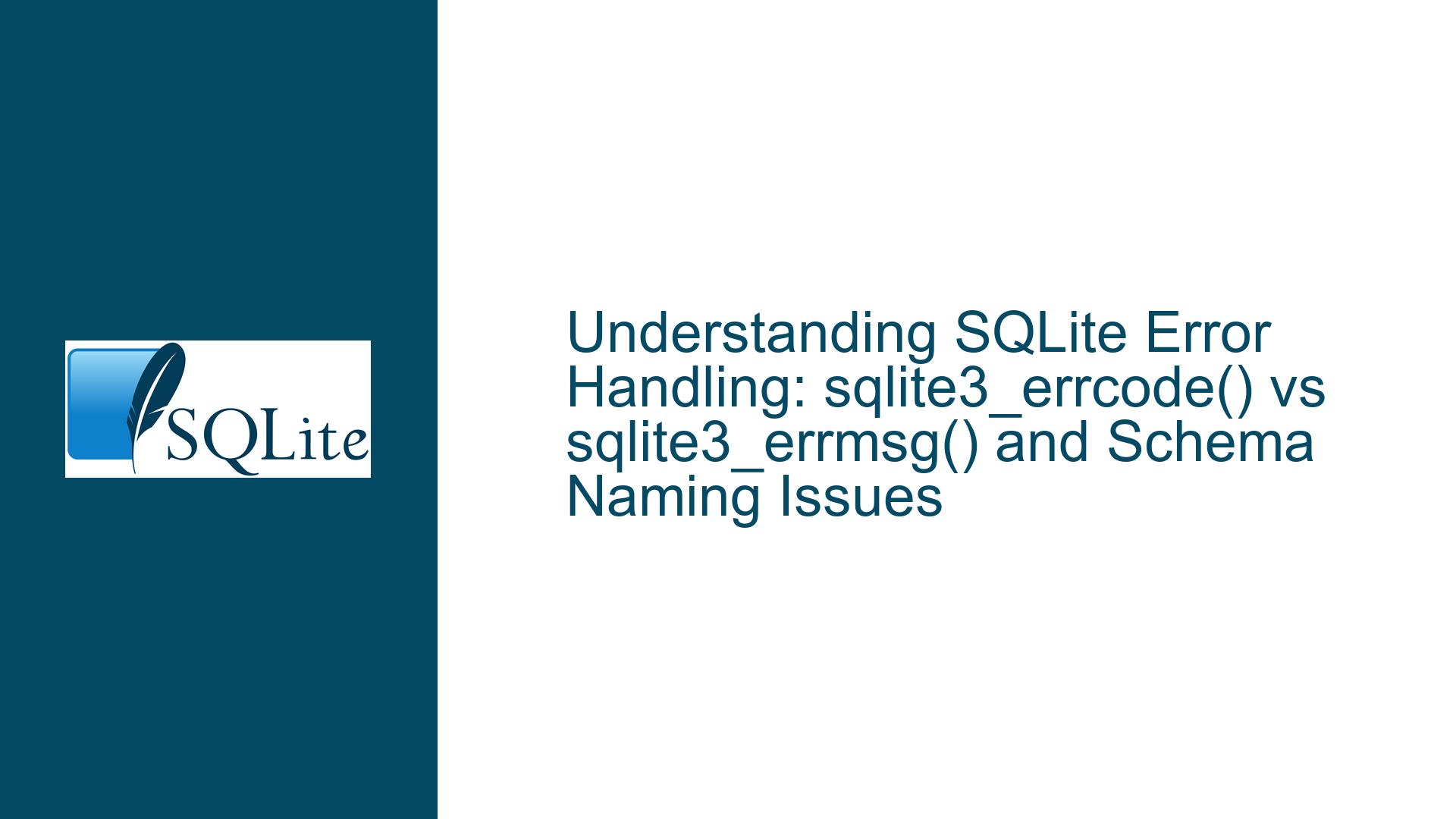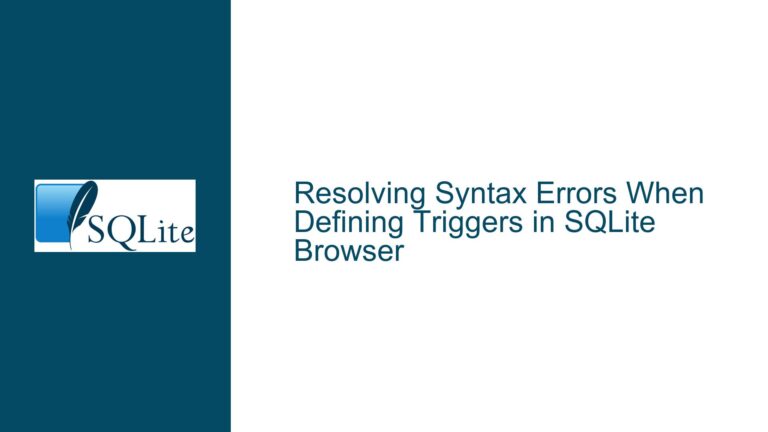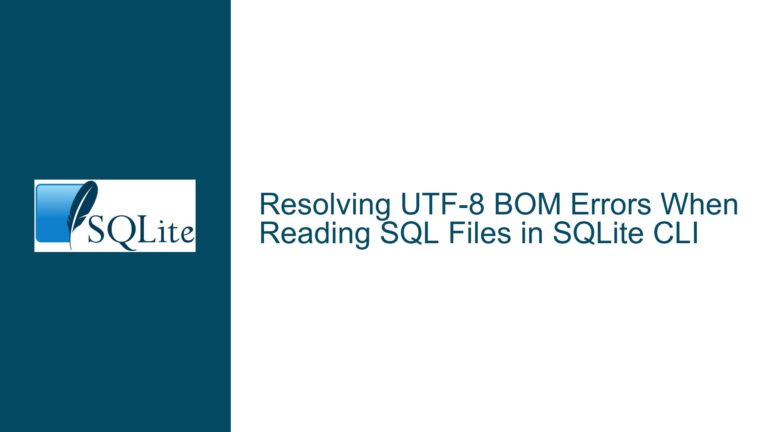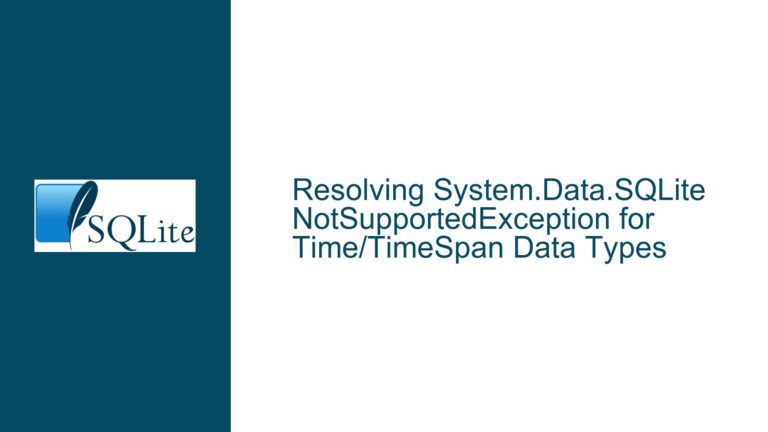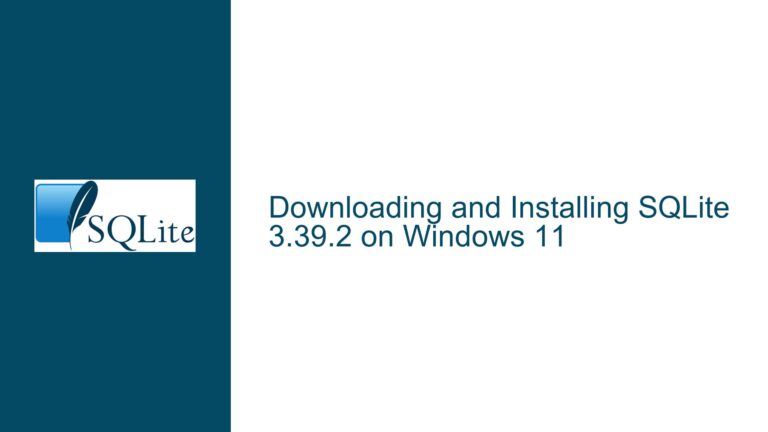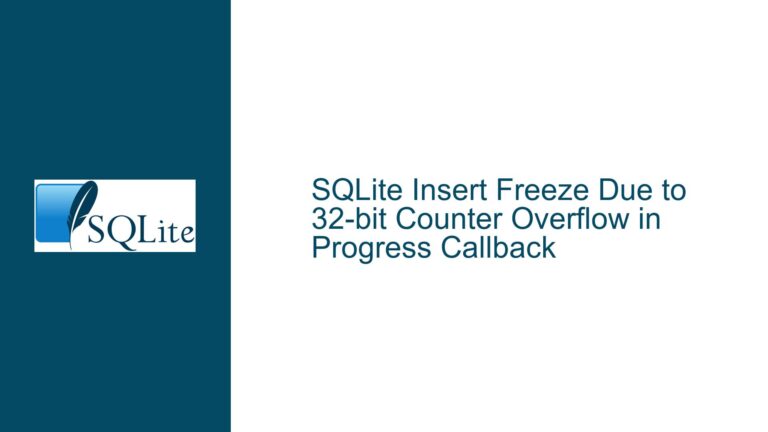SQLite Error Handling: sqlite3_errcode() vs sqlite3_errmsg() and Schema Naming Issues
SQLite Error Code and Message Retrieval Discrepancies
When working with SQLite, understanding how to properly handle and interpret errors is crucial for debugging and ensuring the robustness of your application. A common issue arises when developers attempt to retrieve error information using sqlite3_errcode() and sqlite3_errmsg(). These functions serve different purposes, and their behavior can sometimes be confusing, especially when dealing with schema naming issues.
The sqlite3_errcode() function returns the numeric result code or extended result code for the most recent failed API call. This code is useful for programmatically determining the type of error that occurred. On the other hand, sqlite3_errmsg() returns a human-readable string that describes the error in more detail. While both functions are designed to help diagnose issues, they can sometimes produce seemingly inconsistent results, particularly when the error involves schema or table naming.
In the scenario described, the developer encountered a situation where sqlite3_prepare_v2() returned a non-zero result code, indicating an error, but sqlite3_errcode() subsequently returned 0 (SQLITE_OK). This discrepancy led to confusion and hindered effective error handling. The issue was further complicated by the incorrect use of the schema name "master" instead of "main" in the SQL query, which caused the query to fail.
Incorrect Schema Naming and Error Code Retrieval
The root cause of the issue lies in the incorrect schema name used in the SQL query. In SQLite, the default schema name for the primary database is "main". When a database is opened using sqlite3_open(), it is automatically attached with the schema name "main". The schema name "master" is not recognized unless a database has been explicitly attached with that name using the ATTACH DATABASE command.
When the developer executed the query SELECT * FROM master.leagues;, SQLite correctly identified that the table "leagues" did not exist in the schema "master". This resulted in an error, which was reflected in the non-zero return value of sqlite3_prepare_v2(). However, the subsequent call to sqlite3_errcode() returned 0, which is unexpected given that an error had just occurred.
The reason for this behavior is that sqlite3_errcode() returns the result code of the most recent API call, not necessarily the most recent error. If the error occurred during the execution of sqlite3_prepare_v2(), but no subsequent API calls were made before calling sqlite3_errcode(), the function might return 0 because no new errors have been recorded. This can lead to confusion, as the developer might expect sqlite3_errcode() to reflect the error from the previous API call.
In contrast, sqlite3_errmsg() provides a more reliable way to retrieve error information, as it returns a descriptive message that corresponds to the most recent error, regardless of whether it was caused by the last API call or an earlier one. In this case, sqlite3_errmsg() correctly returned the message "No such table: master.leagues", which helped the developer identify the issue with the schema name.
Resolving Schema Naming Issues and Ensuring Consistent Error Handling
To resolve the issue and ensure consistent error handling, the developer should first verify the correct schema name using the appropriate PRAGMA commands. The PRAGMA database_list; command can be used to list all attached databases and their corresponding schema names. This will help confirm that the schema name "main" is being used for the primary database.
Once the correct schema name is confirmed, the SQL query should be updated to reference the correct schema. For example, the query SELECT * FROM main.leagues; should be used instead of SELECT * FROM master.leagues;. This will ensure that the query targets the correct table in the primary database.
In terms of error handling, it is important to understand the behavior of sqlite3_errcode() and sqlite3_errmsg() and use them appropriately. While sqlite3_errcode() can be useful for programmatically determining the type of error, it should not be relied upon exclusively, especially when dealing with complex error scenarios. Instead, sqlite3_errmsg() should be used to retrieve a descriptive error message that can help diagnose the issue more effectively.
Additionally, developers should ensure that they check the return values of all SQLite API calls and handle errors appropriately. This includes checking the return value of sqlite3_prepare_v2() and using sqlite3_errmsg() to retrieve the error message if the call fails. By following these best practices, developers can avoid confusion and ensure that their applications handle errors consistently and effectively.
In summary, the key to resolving the issue lies in understanding the correct schema naming conventions in SQLite and using the appropriate error handling functions. By verifying the schema name with PRAGMA commands and using sqlite3_errmsg() to retrieve descriptive error messages, developers can ensure that their applications are robust and capable of handling errors effectively.
